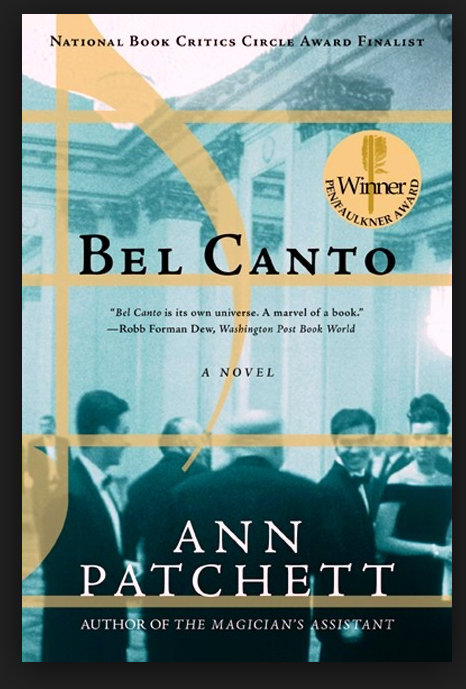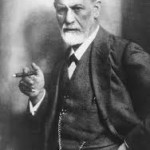Bel Canto by Ann Patchett
 Bel Canto by Ann Pachett– Are there circumstances where a person could fall in love with someone new although he was perfectly well connected and content previously? Could an entire group of people come to love beautifully sung opera although they hadn’t been previously been exposed to it before or if they had, they hadn’t been moved by it? Could a group of people dedicated to a political cause give up their dedication and wish to lead another completely different life style in a relatively short period time? These are some of the questions that gradually emerge as we follow the lives of a group of terrorists and their hostages over several weeks. The setting is a third world country where a birthday party was being held for a prominent Japanese industrialist by the government officials who hoped that he and other well heeled guests might be favorably inclined to bring business to this country. Since the guest of honor loves opera, a very famous female opera star is imported to perform in his honor at the party. The guests also include diplomats from other countries so several languages are spoken at this affair.
Bel Canto by Ann Pachett– Are there circumstances where a person could fall in love with someone new although he was perfectly well connected and content previously? Could an entire group of people come to love beautifully sung opera although they hadn’t been previously been exposed to it before or if they had, they hadn’t been moved by it? Could a group of people dedicated to a political cause give up their dedication and wish to lead another completely different life style in a relatively short period time? These are some of the questions that gradually emerge as we follow the lives of a group of terrorists and their hostages over several weeks. The setting is a third world country where a birthday party was being held for a prominent Japanese industrialist by the government officials who hoped that he and other well heeled guests might be favorably inclined to bring business to this country. Since the guest of honor loves opera, a very famous female opera star is imported to perform in his honor at the party. The guests also include diplomats from other countries so several languages are spoken at this affair.
Suddenly through the airshafts emerge a group of young terrorists, with their guns led by three generals who hope to capture and take away the President of the country and hold him hostage with the hope of freeing prisoners whom they feel are unjustly in jail. Unfortunately for them only the host Vice President was among the guests and the terrorists were not quick enough to escape. The situation becomes a standoff with the hostages and their captors living together in the large vice presidential mansion behind a large wall with a Red Cross mediator bringing them food and ferrying back and forth the fruitless demands of both sides. The women and ill ones among the hostages with the exception of the opera star were released. Among the captors there were two young women who initially were originally thought by the hostages to be men. Everyone falls into a routine, which includes opera singing every morning. Most of the translations are done by one man, who was the assistant to the Japanese industrialist. The book may be based on an event that happened at the home of the Japanese ambassador to Peru in 1996 but the issues here are clearly the imagination and the story that Ms. Patchett has chosen to tell. What emerges is a study of human relationships and the power of the human voice when it is expressing emotion through singing opera and how these two important parts of life can be connected. The novel has some twists and turns and is a beautiful well written story.













